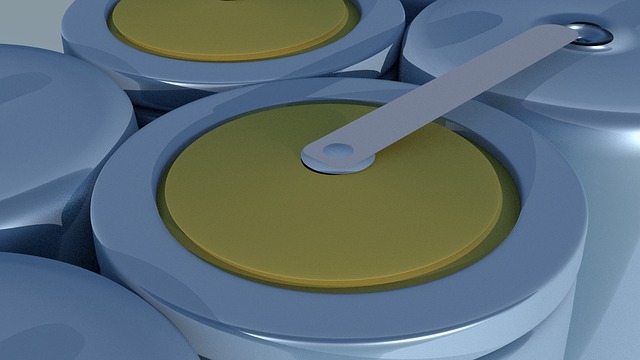Best Nickel Metal Hydride Batteries - Introduction and Charging Methods
Sep 15, 2021 Pageview:1242
The number of portable electronic devices that run on batteries has exploded. Customers could be unsure which battery to purchase for these gadgets. NiMH rechargeable batteries are ideal for a wide range of battery applications. In general, NiMH batteries are ideally matched to the performance characteristics of devices that require a lot of energy and are used frequently.
Nickel–metal hydride (Ni–MH) batteries have a high metal content, with nickel being coupled with both the positive and negative–hydrogen storage electrodes. Furthermore, the negative electrode of most commercial Ni–MH batteries contains many rare earth elements (REEs) such as lanthanum and a considerable amount of cobalt.
This guide will teach you more about Nickel Metal Hydride (NiMH) batteries, how to charge them, and which rechargeable battery is best.
Let's dive in!
Best Way to Charge Nickel-metal Hydride Batteries
Maintaining the performance of NiMH cells and batteries requires proper charging. Knowing how to charge them appropriately will ensure that they perform at a better level and last longer.
With nickel-metal hydride batteries, you can employ a variety of charging techniques. Unfortunately, charging NiMH nickel-metal hydride batteries is more complicated than other types of cells or batteries.
Because NiMH battery charging must be done correctly, a few tips are frequently helpful.
●Never charge a NiMH cell with the wrong charger: Charging a battery of any kind with the wrong charger is never a good idea. End-of-charge detection will not operate with NiMH cells when charged with a NiCd charger.
●Charge at room temperature: NiMH cells do not like to be charged at low or high temperatures.
●Check cell temperature: If a NiMH cell becomes too hot to handle, the charging process should be stopped. Consumer chargers do not permanently correctly cease the charge. When the batteries are warm to the touch, remove them. Stop charging your batteries with a charger that "cooks" them.
●Check the charge status manually: Many lower-priced NiMH battery chargers have a genuine risk of overcharging, and there may be no backup timed end of the charge. As a result, it's a good idea to carefully verify whether the battery is likely to be charged before turning off the charger.
●Check for fast charge capability: While many NiMH cells can be fast charged, not all of them are. Before performing a quick charge, double-check the datasheet.
●Fast charging: If the NiMH cells can be charged quickly, this is the optimum mode. When charged in this manner, it is easy to notice the charge point's termination. Up to roughly 70 percent charge, the charging efficiency is close to 100 percent, and the battery remains cool. As a result, fast charging with most NiMH cells is acceptable.
●Trickle charging: Trickle charging should not be done for long periods. Nickel-based batteries must cool down. The trickle charge is too high if it's heated.
●Make sure you're using the correct charger: Charge algorithms for nickel- and lithium-based batteries are vastly different. Don't mix up the chargers. A NiMH charger can also charge NiCd batteries; however, a NiCd charger will overcharge NiMH batteries.
Because NiMH cells are more sensitive to how they are charged than other rechargeable batteries, it is critical to use the correct NiMH charger and utilize it correctly. The cells will last longer and perform better as a result of this.
Which rechargeable battery is best?
The best rechargeable batteries are high-quality, ready to use right out of the box, hold a charge after months of storage, and are cost-effective for powering various devices over time. There's also no escaping that the best rechargeable batteries are significantly more expensive than single-use lithium or alkaline batteries. The price can sometimes be three or four times higher.
The majority of rechargeable batteries on the market today use nickel-metal hydride chemistry. They're a better deal than alkaline disposable batteries, especially if you need batteries regularly. AA rechargeable batteries have been shown to deliver more than 400 hours of power to your gadgets. If your equipment requires two batteries, the cost of using disposables for the same amount of time could be more than £160. Rechargeable nickel-zinc (NiZn) batteries are occasionally seen. They are, however, difficult to come by in stores. Nickel-cadmium (NiCad) rechargeable batteries should no longer be available; they've been illegal to sell to consumers in the UK since 2006 due to EU regulation.

Are rechargeable batteries worth it in 2021?
There's no denying that using rechargeable batteries saves money and helps the environment. If saving money is your primary motive for switching, don't rush out and replace all of your AA, AAA, C, and D batteries with rechargeable equivalents. It is because:
●Many low-current-draw gadgets, such as wall clocks, smoke alarms, radios, thermostats, emergency flashlights, and even your often used wireless keyboard and mouse, are powered by batteries. If you use rechargeable batteries, it will take years to reach the payback period for these devices because they consume electricity at such a low rate.
●Consider your wireless mouse and keyboard. A pack of eight normal AA batteries may cost $8, which should last for 18 months, and run these two gadgets. Five decent rechargeable AA batteries — one for the mouse, two for the keyboard, and two spares – may cost $15 in comparison. A reputable charger will set you back an additional $40.
●Using rechargeable batteries in your keyboard and mouse would take nearly seven 18-month periods – or more than ten years – to pay for themselves. It does not account for the money spent on power to recharge the batteries, which further extends the payback period. Furthermore, after ten years, rechargeable batteries may no longer be able to hold a charge effectively.
Conclusion:
This guide covered Nickel Metal Hydride (Ni–MH) batteries and their charging methods. You'll also learn about the best rechargeable battery and whether it's still worth it in 2021. To make the most of your knowledge, read the complete guide and discover everything there is to know about Nickel Metal Hydride batteries.
- Prev Article: Battery White Powder-Terminals and Safety
- Next Article: Best Marine Battery for Trolling Motor-Type and Cycle Life
Leave Message
Hottest Categories
-
Hottest Industry News
-
Latest Industry News














